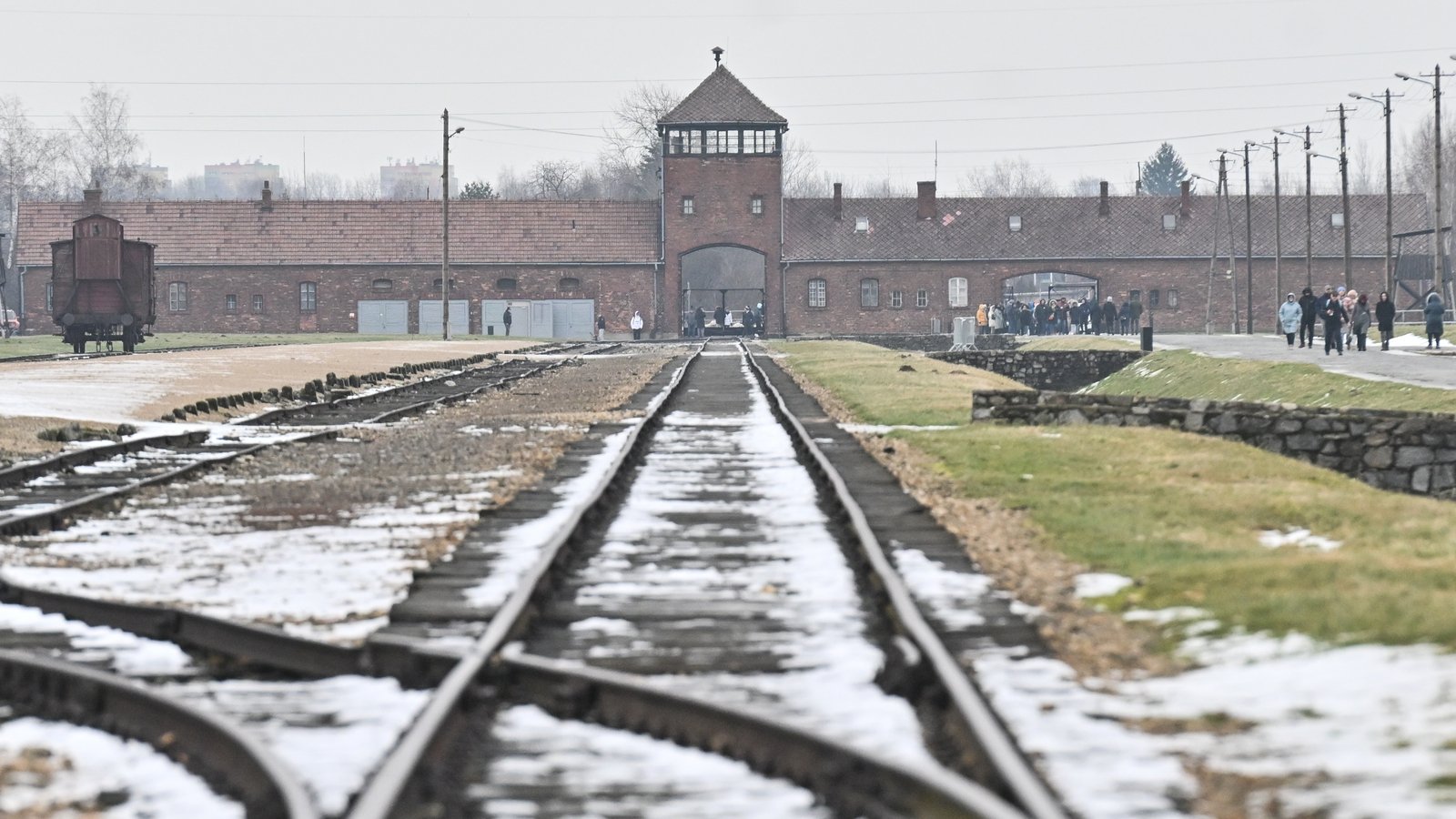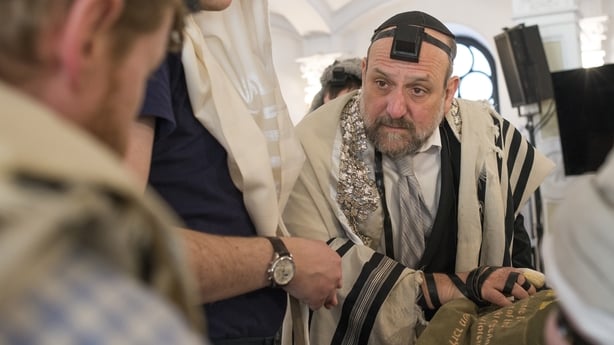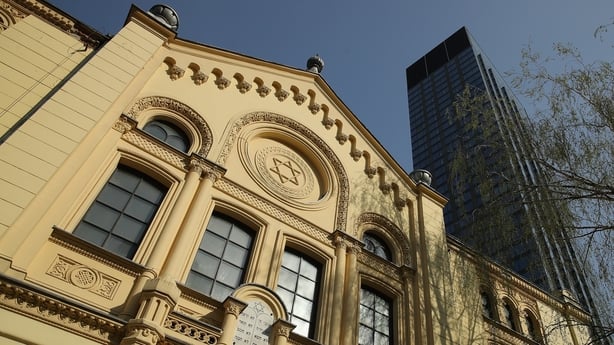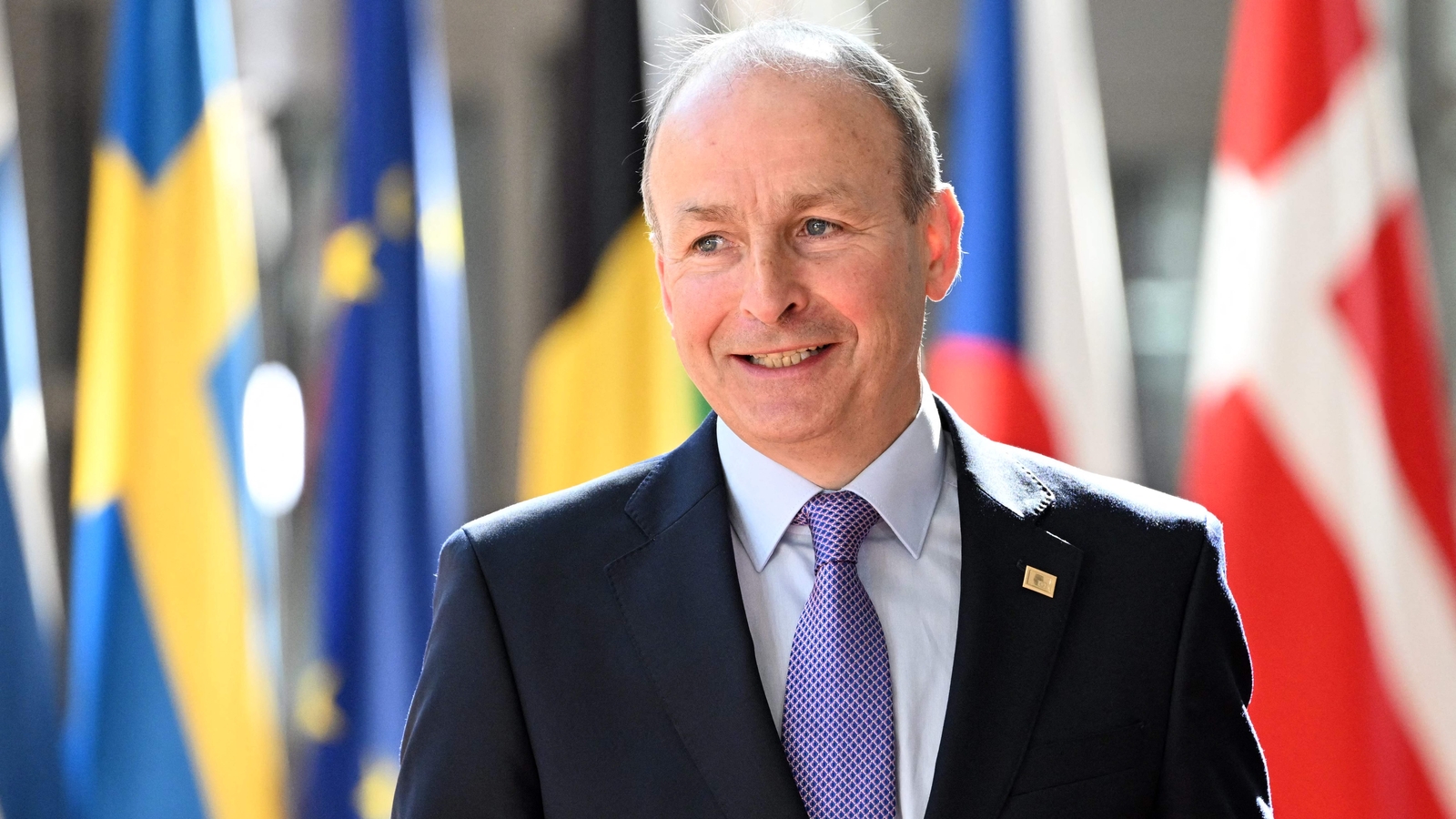Event to mark 79 years since Auschwitz liberation

There is a “unique responsibility to study and remember” the Holocaust, Chief Rabbi of Poland Michael Schudrich said.
Rabbi Schudrich will take part in a remembrance ceremony with survivors of the Holocaust at the site of the former Auschwitz-Birkenau Nazi death camp to mark the 79th anniversary of its liberation.
The heads of Poland’s other religious faiths and the country’s president, Andrzej Duda, will also be in attendance for an ecumenical service remembering the victims of the Holocaust.
Since 2005, 27 January, the date on which the Soviet Red Army liberated the camp in 1945, has been designated as International Holocaust Remembrance Day by the United Nations.
Remembrance ceremonies are being held by Jewish communities around the world.
“It’s remembering the most horrific genocide in world history that was committed against my people,” Rabbi Schudrich told RTÉ News.
“On the other hand, it’s the liberation of Auschwitz. It’s a sign of hope. Even horrible things can come to an end”.
Six million Jews were killed by the Nazis during the Holocaust.
At Auschwitz-Birkenau, the Nazis’ plan to murder Europe’s Jewish population was carried out on a vast, barbaric scale.
Around 1.1 million people were murdered at the camp, set up in 1940 by German forces just outside the town of Oswiecim in German-occupied southern Poland.
Around 900,000 Jews were murdered in gas chambers immediately or soon after they arrived at the camp.
More than 200,000 of those victims were children and young people.
Poles, Roma gypsies, other minority groups and Soviet prisoners of war accounted for the remainder of deaths at the camp.

Since 2004, Rabbi Schudrich has overseen Poland’s relatively small Jewish community, which is served by five other rabbis.
According to Poland’s most recent census from 2021, more than 15,000 Poles identify as Jewish which is double the number from the previous census in 2011.
Before World War II, Poland was home to Europe’s largest Jewish population.
Around 3.3 million, about 10%, of the country’s pre-war population in 1939 were Jewish. Most perished in the Holocaust.
350,000 Polish Jews survived the war, but the vast major emigrated to Israel and North America in the following decades.
Rabbi Schudrich estimates that the real number of Jews currently living in Poland could be “two or three times larger” than the official number.
He and his fellow rabbis are approached by at least two or three Polish citizens each week who have recently discovered their Jewish heritage.
An estimated 1,000 Ukrainian refugees currently in Poland, he said, are of the Jewish faith, which has further increased the community’s size.
“It has become a diverse community, and that diversity is a sign of health and vitality that different people want to express their Judaism in different ways”, said Rabbi Schudrich.
The Jewish Historical Institute in Warsaw told RTÉ News that its research team receives about 600 new requests from members of the public each year seeking information about their family’s Jewish roots.
Many of Poland’s Jewish community live in Warsaw.
In 2013, POLIN, the city’s museum on the history of Polish Jews, opened and regularly holds cultural and educational events.
The capital’s Nozyk synagogue, located within the boundary of the old Warsaw Ghetto, is the only one to have survived World War II.
The Nazis converted the synagogue into stables for horses but, unlike the rest of the ghetto which German forces completely destroyed during the Ghetto Uprising in April 1943, the Nozyk synagogue partially survived.

It was fully restored in the 1970s and 1980s.
Other Polish cities such as Krakow and Lodz today have small but active Jewish communities.
A New Yorker who grew up in Manhattan, Rabbi Schudrich is the grandson of four Polish-Jewish grandparents who emigrated to the United States before World War I.
In 1990, he moved to Poland to take up an educational role and became the rabbi of Warsaw in 2000, later becoming the country’s chief rabbi in 2004.
He said he believed it was “even more important” to remember the Holocaust following the Hamas attacks on Israel on 7 October.
Up to 1,200 Israelis, mostly civilians, were killed by Hamas on 7 October and 250 were taken hostage, more than half of whom remain in Gaza, including the bodies of 28 dead hostages.
According to the health ministry in Gaza, more than 26,000 people, about 70% of them women and children, have been killed since the start of Israel’s military action following the 7 October attacks.
Rabbi Schudrich said he has not noted a rise in anti-Semitic attacks in Poland since the start of the current war in Gaza.
“There have been anti-Semitic things said, but there’s nothing really against the community so far, and I hope it stays that way”.
The incident was condemned by all political parties. Mr Braun is currently suspended from parliament and facing charges for the incident.





